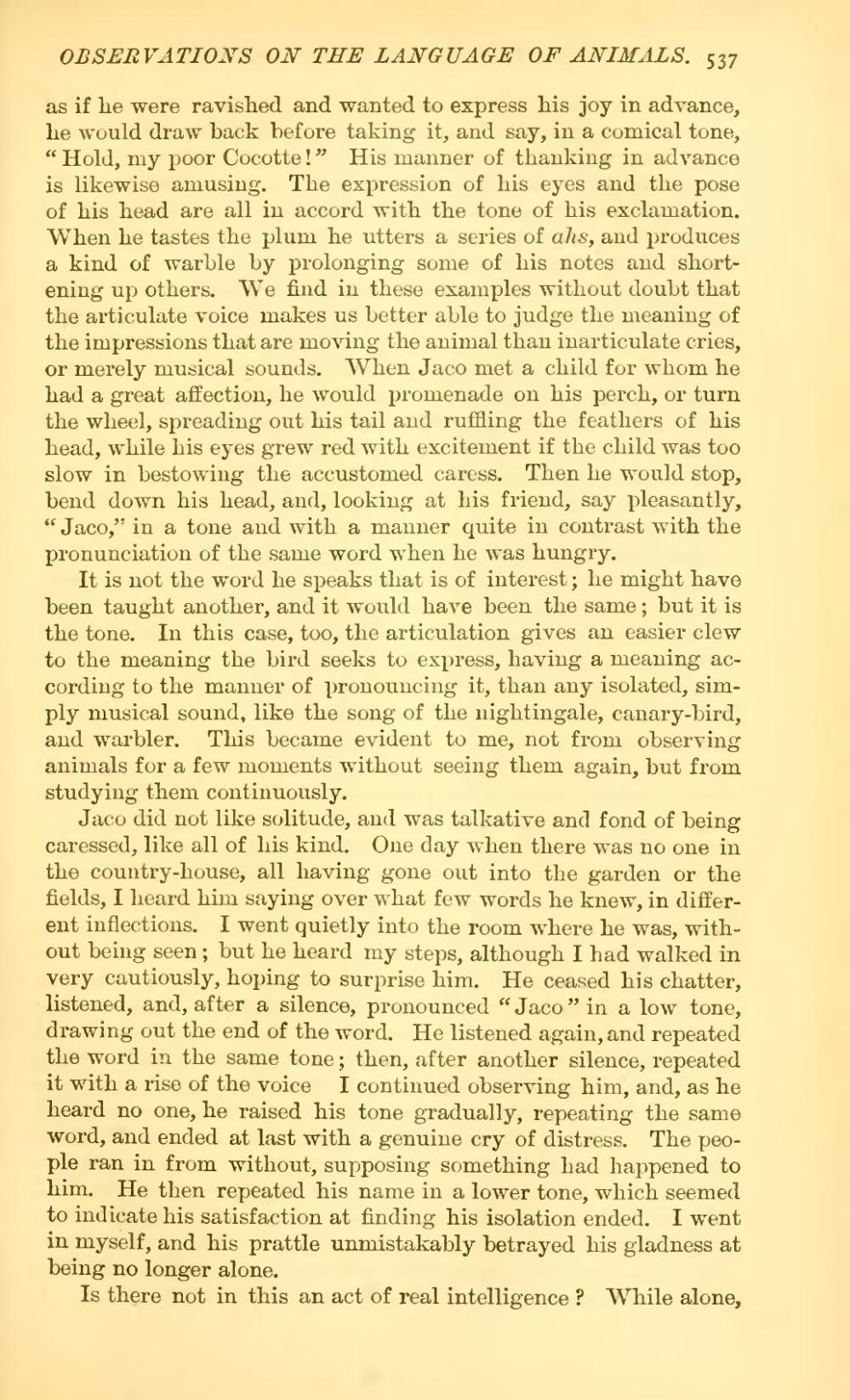as if he were ravished and wanted to express his joy in advance, he would draw back before taking it, and say, in a comical tone, "Hold, my poor Cocotte!" His manner of thanking in advance is likewise amusing. The expression of his eyes and the pose of his head are all in accord with the tone of his exclamation. When he tastes the plum he utters a series of ahs, and produces a kind of warble by prolonging some of his notes and shortening up others. We find in these examples without doubt that the articulate voice makes us better able to judge the meaning of the impressions that are moving the animal than inarticulate cries, or merely musical sounds. When Jaco met a child for whom he had a great affection, he would promenade on his perch, or turn the wheel, spreading out his tail and ruffling the feathers of his head, while his eyes grew red with excitement if the child was too slow in bestowing the accustomed caress. Then he would stop, bend down his head, and, looking at his friend, say pleasantly, "Jaco," in a tone and with a manner quite in contrast with the pronunciation of the same word when he was hungry.
It is not the word he speaks that is of interest; he might have been taught another, and it would have been the same; but it is the tone. In this case, too, the articulation gives an easier clew to the meaning the bird seeks to express, having a meaning according to the manner of pronouncing it, than any isolated, simply musical sound, like the song of the nightingale, canary-bird, and warbler. This became evident to me, not from observing animals for a few moments without seeing them again, but from studying them continuously.
Jaco did not like solitude, and was talkative and fond of being caressed, like all of his kind. One day when there was no one in the country-house, all having gone out into the garden or the fields, I heard him saying over what few words he knew, in different inflections. I went quietly into the room where he was, without being seen; but he heard my steps, although I had walked in very cautiously, hoping to surprise him. He ceased his chatter, listened, and, after a silence, pronounced "Jaco" in a low tone, drawing out the end of the word. He listened again, and repeated the word in the same tone; then, after another silence, repeated it with a rise of the voice I continued observing him, and, as he heard no one, he raised his tone gradually, repeating the same word, and ended at last with a genuine cry of distress. The people ran in from without, supposing something had happened to him. He then repeated his name in a lower tone, which seemed to indicate his satisfaction at finding his isolation ended. I went in myself, and his prattle unmistakably betrayed his gladness at being no longer alone.
Is there not in this an act of real intelligence? While alone.
